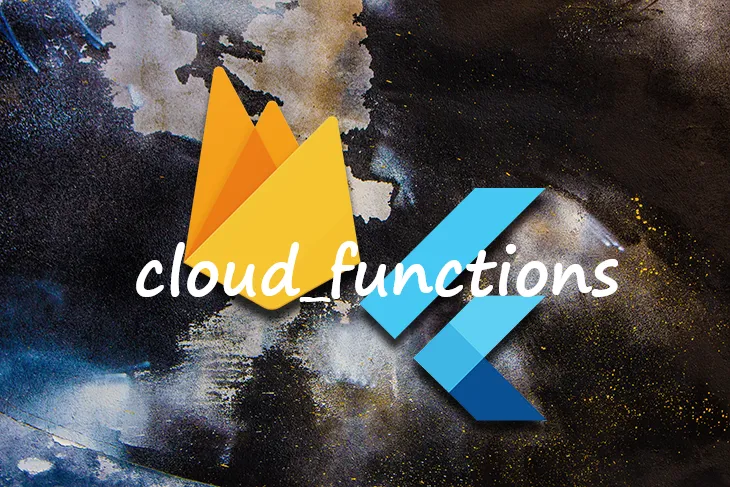A Flutter Plugin Allowing You to Use Firebase Cloud Functions
Firebase Cloud Functions for Flutter
A Flutter plugin to use the Cloud Functions for Firebase API.
To learn more about Functions, please visit the Firebase website
Getting Started
To get started with Cloud Functions for Firebase, please see the documentation.
Usage
To use this plugin, please visit the Functions Usage documentation
Issues and feedback
Please file FlutterFire specific issues, bugs, or feature requests in our issue tracker.
Plugin issues that are not specific to FlutterFire can be filed in the Flutter issue tracker.
To contribute a change to this plugin, please review our contribution guide and open a pull request.
Use this package as a library
Depend on it
Run this command:
With Flutter:
$ flutter pub add cloud_functionsThis will add a line like this to your package's pubspec.yaml (and run an implicit flutter pub get):
dependencies:
cloud_functions: ^4.3.4Alternatively, your editor might support flutter pub get. Check the docs for your editor to learn more.
Import it
Now in your Dart code, you can use:
import 'package:cloud_functions/cloud_functions.dart';// Copyright 2019 The Chromium Authors. All rights reserved.
// Use of this source code is governed by a BSD-style license that can be
// found in the LICENSE file.
import 'dart:core';
import 'dart:io';
import 'package:cloud_functions/cloud_functions.dart';
import 'package:cloud_functions_example/firebase_options.dart';
import 'package:firebase_core/firebase_core.dart';
import 'package:flutter/foundation.dart';
import 'package:flutter/material.dart';
Future<void> main() async {
WidgetsFlutterBinding.ensureInitialized();
await Firebase.initializeApp(
options: DefaultFirebaseOptions.currentPlatform,
);
// You should have the Functions Emulator running locally to use it
// https://firebase.google.com/docs/functions/local-emulator
FirebaseFunctions.instance.useFunctionsEmulator('localhost', 5001);
runApp(MyApp());
}
class MyApp extends StatefulWidget {
MyApp({Key? key}) : super(key: key);
@override
_MyAppState createState() => _MyAppState();
}
class _MyAppState extends State<MyApp> {
List fruit = [];
@override
Widget build(BuildContext context) {
final localhostMapped =
kIsWeb || !Platform.isAndroid ? 'localhost' : '10.0.2.2';
return MaterialApp(
home: Scaffold(
appBar: AppBar(
title: const Text('Firebase Functions Example'),
),
body: Center(
child: ListView.builder(
itemCount: fruit.length,
itemBuilder: (context, index) {
return ListTile(
title: Text('${fruit[index]}'),
);
},
),
),
floatingActionButton: Builder(
builder: (context) {
return Column(
mainAxisSize: MainAxisSize.min,
crossAxisAlignment: CrossAxisAlignment.end,
children: [
FloatingActionButton.extended(
onPressed: () async {
// See .github/workflows/scripts/functions/src/index.ts for the example function we
// are using for this example
HttpsCallable callable =
FirebaseFunctions.instance.httpsCallable(
'listFruit',
options: HttpsCallableOptions(
timeout: const Duration(seconds: 5),
),
);
await callingFunction(callable, context);
},
label: const Text('Call Function'),
icon: const Icon(Icons.cloud),
backgroundColor: Colors.deepOrange,
),
const SizedBox(height: 10),
FloatingActionButton.extended(
onPressed: () async {
// See .github/workflows/scripts/functions/src/index.ts for the example function we
// are using for this example
HttpsCallable callable =
FirebaseFunctions.instance.httpsCallableFromUrl(
'http://$localhostMapped:5001/flutterfire-e2e-tests/us-central1/listfruits2ndgen',
options: HttpsCallableOptions(
timeout: const Duration(seconds: 5),
),
);
await callingFunction(callable, context);
},
label: const Text('Call 2nd Gen Function'),
icon: const Icon(Icons.cloud),
backgroundColor: Colors.deepOrange,
),
],
);
},
),
),
);
}
Future<void> callingFunction(
HttpsCallable callable,
BuildContext context,
) async {
try {
final result = await callable();
setState(() {
fruit.clear();
result.data.forEach((f) {
fruit.add(f);
});
});
} catch (e) {
ScaffoldMessenger.of(context).showSnackBar(
SnackBar(
content: Text('ERROR: $e'),
),
);
}
}
}Download details:
Author: firebase.google.com
Source: https://github.com/firebase/flutterfire/tree/master/packages/cloud_functions/cloud_functions
#flutter #android #ios #web-development #google #firebase #api #cloud
